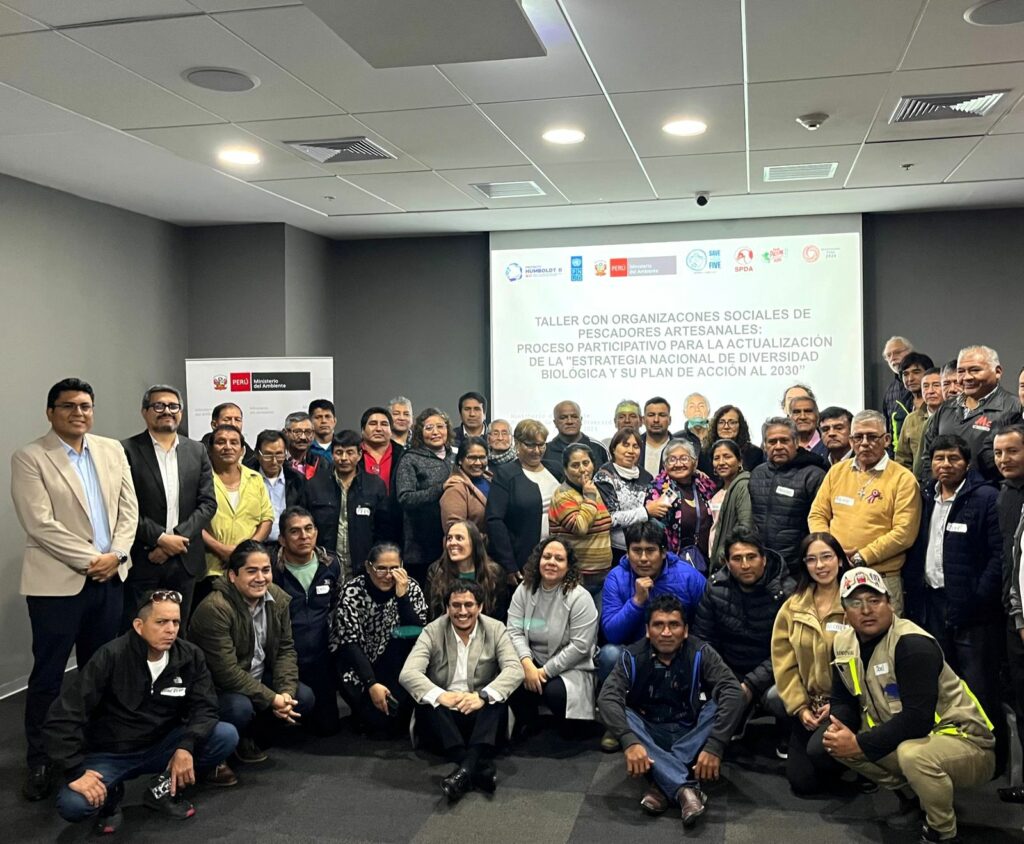Artisanal fishermen participate in the validation of the National Biodiversity Strategy
This is the first time that representatives of artisanal fisheries have participated in this process that contributes to the conservation of our oceans.

In a participatory process, artisanal fishermen met with specialists in a workshop to update the “National Biodiversity Strategy and Action Plan to 2030” (EPANDB) on July 25. The aim of this strategy is to conserve and promote the sustainable use of the country’s biodiversity, reduce pressure on resources and promote sustainable development.
For the first time, representatives of the artisanal fishing sector participated in the event, such as José Martínez Vite from the Guild of Artisanal Fishermen of Caleta Cancas – Grepesar (Tumbes), Adolfo Zúñiga Alfaro from the Association of Artisanal Fishing Shipowners of the Port of Ilo (Ilo), Hilda León Aguayo from the Association of Artisanal Fishing Shipowners of the Port of Ilo (Ilo), Hilda León Aguayo from the Asociación de Pobladores Puerto Perú Pescadores y Extractores de Productos Hidrobiológicos y Turismo (Tumbes), and Jorge Arroyo Annco from the Asociación de Armadores Artesanales de Matarani Mollendo (Arequipa).

“The participation of the fisheries sector in the design of the National Biodiversity Strategy is key to ensure that the objectives of marine conservation and sustainable use of hydrobiological resources are fully aligned with the Kunming-Montreal Global Biodiversity Framework”, said Jimpson Dávila, Marine Conservation Manager of the Marine Governance Program of the Peruvian Society of Environmental Law (SPDA). Dávila was joined at the workshop by representatives from the Humboldt Project, the Deutsche Gesellschaft für Internationale Zusammenarbeit (GIZ), and Futuro Sostenible, among others.
During the workshop, Roxana Solis, Coordinator of Biodiversity Management Instruments of the Ministry of Environment, presented the objectives of the Kunming Montreal Global Biodiversity Framework, within which the EPANDB is being updated. Maria Luisa Mispireta then gave a presentation on the elaboration process of the NBSAP and its projection until 2050.
A dialogue was then held on the proposed strategic objectives and targets to be set, and working groups were formed to review the proposed targets and actions by objectives related to two issues of interest in marine ecosystems: pollution, illegal fishing and overexploitation of resources.
These efforts are being made in the face of ecosystem problems. Currently, 75% of terrestrial ecosystems and 66% of marine ecosystems are seriously altered by anthropogenic causes; according to a United Nations report, about 85% of the world’s wetlands have been lost and 28% of species are threatened.
This is one of the first experiences of artisanal fishermen’s participation in the validation process of the National Biodiversity Strategy. The leaders emphasized the importance of decentralizing these spaces for consultation and participation in order to facilitate the participation of more local actors.